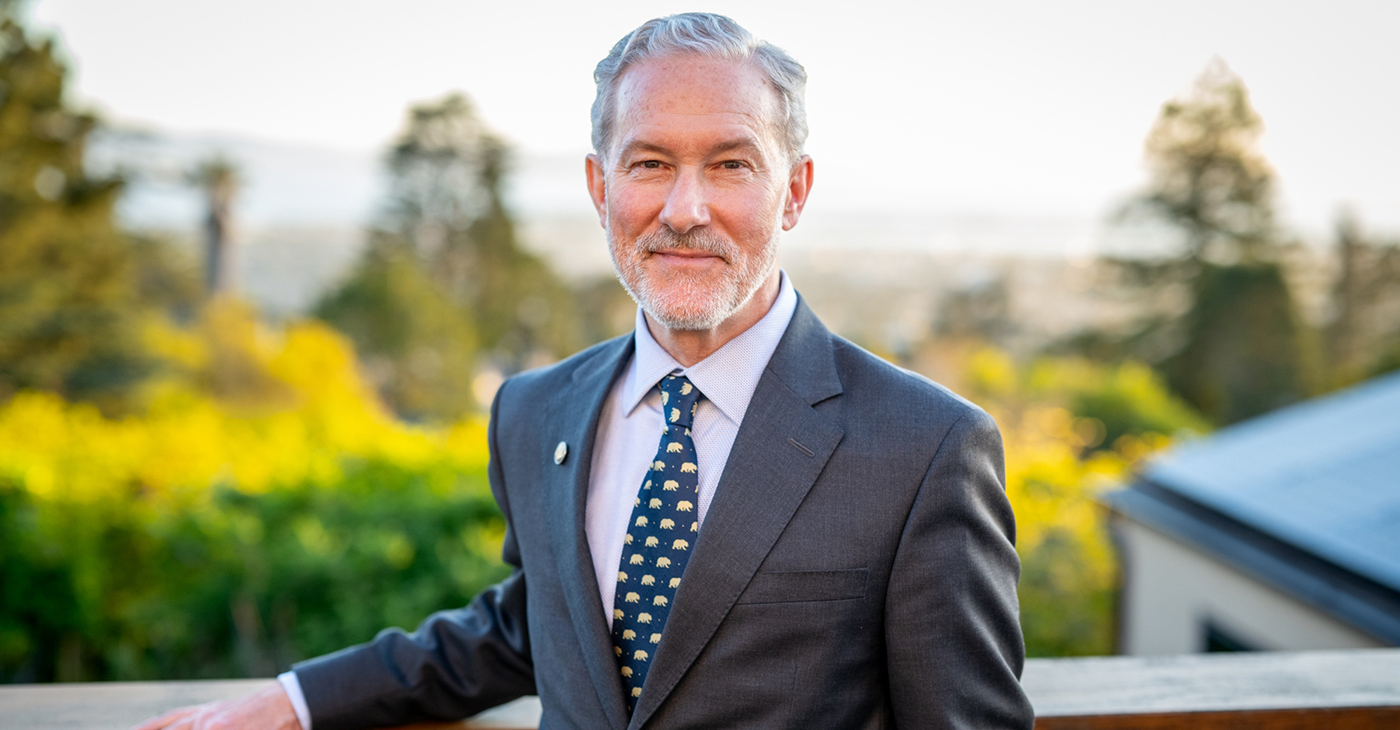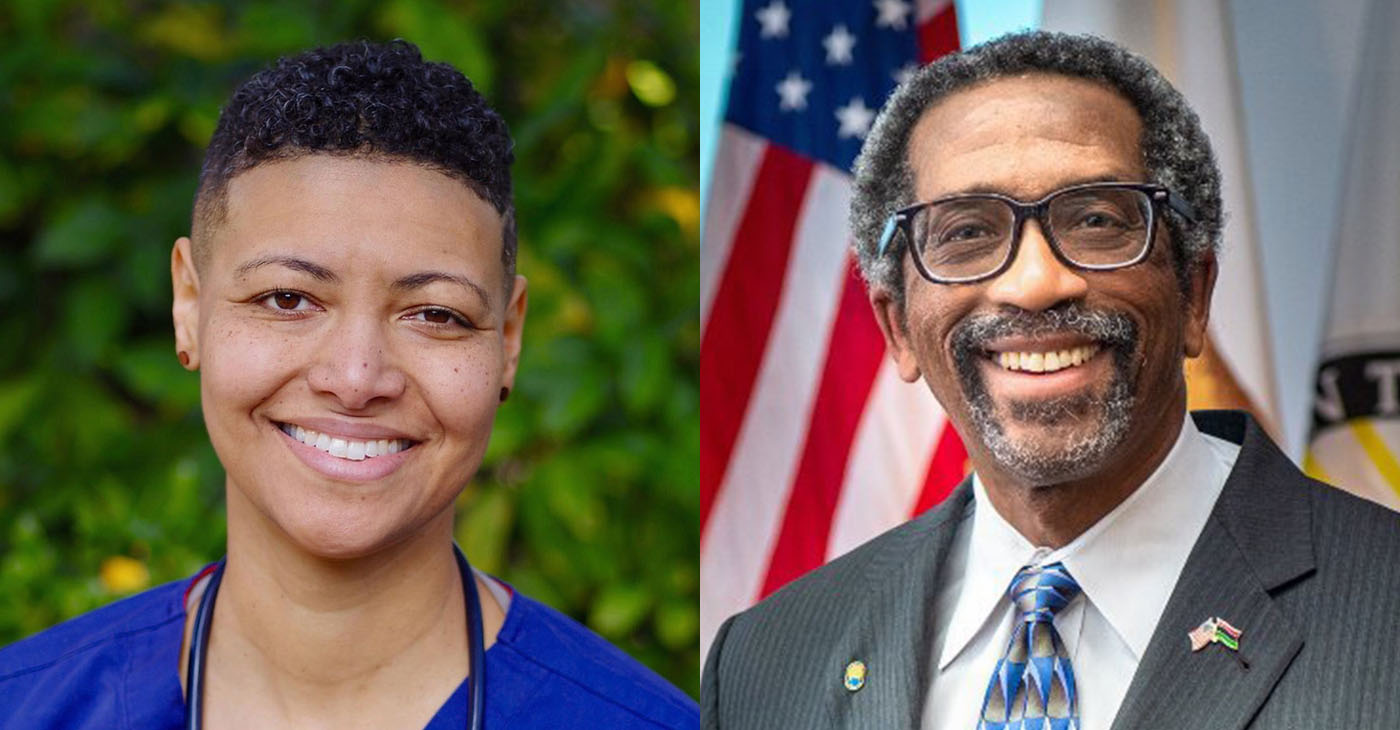Berkeley
Racism at Berkeley Unified “Has Been Tolerated for Too Long,” Say Community Leaders
Tensions remain high at Berkeley High School in the wake of a student walkout sparked by the discovery of a written message in the school library threatening to lynch Black students.
Last Thursday’s walkout, which was supported by most of the school’s 3,000 students, drew national media attention. But Black students and community leaders are concerned that now that the immediate incident seems to be resolved, the district wants to go back to business as usual – ignoring the pattern of racist threats at the school and the ongoing discrimination and racial disparities that are plaguing the Berkeley Unified School District (BUSD).
The district has announced that a 15-year old student has admitted responsibility for writing the terrorist threat on the school computer. However, school officials have not said what will be done to punish the student or what steps will be taken to reduce the level of hostility to Black students on campus.
BUSD is still undecided on what form the punishment should take, according to district spokesperson Mark Coplan, who said the punishment could range from restorative justice, which focuses on rehabilitating the perpetrator through community service, to expulsion.
The punishment will be determined through a confidential process in order to protect the student’s identity.
Speaking at a press conference last Friday, members of the Berkeley NAACP and its youth council announced that they would not allow racial justice issues to be swept under the rug.
“I hope the school board understands how serious this is,” said Rayven Wilson, a NAACP Youth Council member. “The Black community sees this as a threat. This is not a joke. We need you to understand our pain is real.”
Moni Law, Youth Council advisor, pointed out that the latest threat follows two incidents at Berkeley High last year – a noose that was found hanging on a tree and racist comments that were printed in the school yearbook.
“This behavior has been tolerated (for) too long,” Law said.
In an interview with the Post, Berkeley NAACP President Mansour Id-Deen says he wants to work with the district to reduce the ongoing discrimination that impacts Black employees, students and parents in the school district.
Id-Deen said he has been meeting with teachers and classified employees who said they are facing discrimination and harassment at work.
“They have gone to the administration to get the issues resolved,” he said. “The administration, instead of assisting them, has retaliated against them in different ways.”
Id-Deen said he has been trying since June too meet with BUSD Supt. Donald Evans, but no meeting has ever been scheduled.
When the City of Berkeley faced similar issues, it agreed to hire an independent company to handle the employee complaints, he said. “We want them to provide an outside firm to investigate the allegations of employees and put forth solutions.”
Looking at student achievement, he said he was concerned that the data shows that Black students are not doing well in the district, but BUSD is “not doing anything to address that issue.”
Further, in the last six years, Black student enrollment has fallen from 40 percent to 19 percent districtwide, but 60 percent of the students who are suspended are Black, he said.
A number of community people are also concerned about the survival of the African American Studies Department at Berkeley High, which has not had a qualified teacher since the beginning of the school year.
“The Berkeley NAACP strongly encourages the board, in collaboration with the superintendent, to use your powers to fill the vacancy (in African American Studies),” Id-Deen wrote a letter to the superintendent and board, dated Oct. 30.
He said that a highly qualified African American studies teacher who retired from Berkeley High last year, Valarie Trahan, has volunteered to come back to teach the classes but has been ignored by the district.
Berkeley schools’ Supt. Evans, in a May 19 letter to Berkeley NAACP President Id-Deen, addressed the issues of alleged “unfair and discriminatory hiring and promotional practices within BUSD.”
“It is troubling to hear that some of BUSD staff have come to you with their concerns, as that indicates they may not have felt confident in our ability to resolve their concerns, “ wrote Evans.
“I look forward to hearing more from you on this matter,” he wrote. “This is a critical issue to address for the well-being of our staff and students.”
As of this week, President Id-Deen said he has not been contacted by Supt. Evans to schedule a meeting.
Members of the NAACP are urging people to come to the Berkeley school board meeting to call on the board to protect the the future of the African American Studies Department at Berkeley High.
The school board meeting will be held Wednesday, Nov. 18 at 6:30 p.m. at 1231 Addison St. in Berkeley.
Bay Area
Rich Lyons, Longtime Campus Business, Innovation Leader, Will Be UC Berkeley’s Next Chancellor
Rich Lyons, an established economist, former dean of the Haas School of Business and the campus’s current leader for innovation and entrepreneurship, will become the next chancellor at the University of California, Berkeley, the UC Board of Regents announced on April 10.

By Jason Pohl
Rich Lyons, an established economist, former dean of the Haas School of Business and the campus’s current leader for innovation and entrepreneurship, will become the next chancellor at the University of California, Berkeley, the UC Board of Regents announced on April 10.
The board’s unanimous confirmation makes Lyons, 63, the first UC Berkeley undergraduate alumnus since 1930 to become the campus’s top leader. In an interview this week, Lyons said he credits his Berkeley roots and his campus mentors with encouraging him to ask big questions, advance institutional culture and enhance public education — all priorities of his for the years to come.
Lyons, who will be Berkeley’s 12th chancellor, will succeed Chancellor Carol Christ, who announced last year that she’d step down as chancellor on July 1.
“I am both thrilled and reassured by this excellent choice. In so many ways, Rich embodies Berkeley’s very best attributes, and his dedication to the university’s public mission and values could not be stronger,” Christ said. “I am confident he will bring to the office visionary aspirations for Berkeley’s future that are informed by, and deeply respectful of, our past.”
Rising through the Berkeley ranks
Born in 1961, Lyons grew up in Los Altos in the early days of the Silicon Valley start-up boom.
He attended Berkeley, where he graduated in 1982 with a Bachelor of Science degree in business and finance. Lyons went on to earn his Ph.D. in 1987 in economics from MIT. After six years teaching at Columbia Business School, Lyons returned west, where in 1993 he joined the Berkeley faculty as a professor of economics and finance, specializing in the study of international finance and global exchange rates.
He’s remained on campus since, with one notable exception.
Starting in 2006, Lyons spent two years working at Goldman Sachs as the chief learning officer. It was a period that instilled in him an appreciation for leadership and the importance of organizational culture.
He carried those lessons with him when he returned to campus in 2008 and became the dean of the Haas School of Business.
While dean, Lyons oversaw the construction of Connie & Kevin Chou Hall, a state-of-the-art academic building that opened in 2017 and is celebrated for its sustainability. He also helped establish two new degree programs, linking the business school with both the College of Engineering and the Department of Molecular and Cell Biology.
But it was his creation of four distinct defining leadership principles that spurred a sweeping culture initiative at the school that stands out in the minds of many. Those values — question the status quo, confidence without attitude, students always, and beyond yourself — became a creed of sorts for new students and alumni alike.
Those values are important, Lyons said, because they shape and support the cohesive structure of a strong, connected community — spanning science and technology to the arts and humanities. They also convey the story about what it means to be at Berkeley and to believe in the university’s public mission.
“When we are great as educators, it’s identity-making,” Lyons said. “We’re helping students and others see identities in themselves that they couldn’t see.”
Lyons in January 2020 became Berkeley’s first-ever chief officer of innovation and entrepreneurship.
Building on his research exploring how leaders drive innovation and set behavioral norms and culture, Lyons worked to expand and champion Berkeley’s rich portfolio of innovation and entrepreneurship activities for the benefit of students, faculty, staff, startups and external partners.
It was a major commitment to thinking outside the box, he said. One need only look to the Berkeley Changemaker program that he helped launch in 2020 to see innovation and entrepreneurship in action.
The campuswide program with some 30 courses tells the story of what Berkeley is — the story that members of the Berkeley community can tell long into the future. Berkeley Changemaker started as an idea and its courses quickly became among the most popular academic offerings on campus.
“Over 500 students showed up,” he said. “Why? Because it’s a narrative. It’s not just a name. It’s not just a curriculum. It’s not just a course. It’s a way of living, and it’s a way of living that Berkeley has occupied forever. This idea that there’s got to be a better way to do this, question the status quo.”
Activism
Oakland’s ‘Green the Church,’ Others, Host a Climate Revival
On April 20, Oakland’s Green The Church California (GTC) and the Center For Food, Faith and Justice will celebrate Earth Day and present a Climate Revival event titled “Growing Healthy Communities From Soil To The Soul” at McGee Avenue Baptist Church at 1640 Stuart St, Berkeley, CA. The day will include inspiring talks, interactive workshops, networking opportunities, and a special panel on Food Sovereignty and Global Food Resilience.

Growing Healthy Communities from Soil to the Soul in Berkeley
By Y’Anad Burrell
On April 20, Oakland’s Green The Church California (GTC) and the Center For Food, Faith and Justice will celebrate Earth Day and present a Climate Revival event titled “Growing Healthy Communities From Soil To The Soul” at McGee Avenue Baptist Church at 1640 Stuart St, Berkeley, CA,
The day will include inspiring talks, interactive workshops, networking opportunities, and a special panel on Food Sovereignty and Global Food Resilience.
The keynote speaker is Rev. Danté R. Quick, PhD, senior pastor of First Baptist Church of Lincoln Gardens in Somerset, N.J. Quick is well known in the Bay Area, having served for more than 10 years as pastor of Friendship Missionary Baptist Church in Vallejo, CA.
Green The Church, founded in 2010 by Rev. Dr. Ambrose Carroll, Sr., and headquartered in Oakland, helps galvanize Black churches and their local communities and leaders to address issues critical to populations historically disengaged from conversations around pollution and health, climate change, and sustainability and energy efficiency.
The organization collaborates with major environmental, sustainability, food security, faith, and community-based non-profit organizations, and is committed to “creation justice”—care and justice for God’s people and the planet—and building the Beloved Community.
Environmental justice has long been a pressing concern for communities of color who bear the brunt of pollution and ecological degradation. Climate change exacerbates these issues, disproportionately impacting vulnerable communities. Recognizing this urgency, Black churches across the country are taking action.
With deep roots in the African American community and its commitment to social justice, the Black Church has become an essential advocate for sustainable practices and policies.
Over the past 14 years, in a powerful collaboration with significant environmental, sustainability, food security, faith, and community-based non-profit organizations, GTC has created a cadre of Black churches engaging in the environmental justice, climate, and sustainability movement.
GTC presently works with more than 1,000 pastors and congregations across the U.S., and groups in the Bahamas, Ghana, Nigeria, and the UK, showing that we can make a difference together.
The partnership between environmental justice advocates and the Black Church extends beyond individual congregations. Green The Church provides resources and support for faith communities seeking to address climate change and promote environmental justice.
Through collaboration, initiatives such as energy efficiency programs, solar installations, and environmental education have been implemented in Black churches nationwide. These efforts reduce the carbon footprint and save money on energy bills, benefiting the congregations and their communities.
The involvement of the Black Church in the fight against climate change is not just a participation, it’s a powerful message that galvanizes action across communities.
By integrating environmental justice into their ministry, Black churches are demonstrating that addressing climate change is not only a matter of science but also of social and moral responsibility, inspiring change at a grassroots level.
For more information, go to: www.greenthechurch.org.
Activism
Who are the Alameda County District 4 Supervisor Candidates’ Top Campaign Contributors?
Below, we’ve listed each candidate’s 10 highest campaign contributors. For Miley, two of his top campaign donors also bought their own advertisements to support him and/or oppose Esteen through independent expenditures. Such expenditures, though separate from campaign donations, are also public record, and we listed them. Additionally, the National Organization of Realtors has spent about $70,500 on their own independent expenditures to support Miley.

By Zack Haber
Nate Miley, who has served on Alameda County’s Board of Supervisors since 2000, is running for reelection to the District 4 supervisor seat.
Jennifer Esteen, a nurse and activist, is seeking to unseat him and become one of the five members of the powerful board that sets the county’s budget, governs its unincorporated areas, and oversees the sheriff, Alameda Health System, and mental health system.
District 4 includes most of East Oakland’s hills and flatlands beyond Fruitvale, part of Pleasanton and unincorporated areas south of San Leandro like Ashland and Castro Valley.
Voting is open and will remain open until March 5.
In California, campaign donations of $100 or more are public record. The records show that Miley has received about $550,000 in total campaign donations since he won the previous District 4 election in March 2020. Esteen has raised about $255,000 in total campaign donations since she started collecting them last July. All figures are accurate through Feb. 20.
While Miley has raised more money, Esteen has received donations from more sources. Miley received donations of $100 or more from 439 different sources. Esteen received such donations from 507 different sources.
Below, we’ve listed each candidate’s 10 highest campaign contributors. For Miley, two of his top campaign donors also bought their own advertisements to support him and/or oppose Esteen through independent expenditures. Such expenditures, though separate from campaign donations, are also public record, and we listed them. Additionally, the National Organization of Realtors has spent about $70,500 on their own independent expenditures to support Miley.
Nate Miley’s top campaign contributors:
The California Apartment Association, a trade group representing landlords and investors in California’s rental housing business, has spent about $129,500 supporting Miley’s election bid through about $59,500 in ads against Esteen, $55,000 in ads supporting Miley, and $15,000 in campaign donations.
The independent expenditure committee Preserve Agriculture in Alameda County has spent about $46,025 supporting Miley through about $27,200 in their own ads, and $18,825 in donations to his campaign. Preserve Agriculture has supported reelection efforts for former Alameda County DA Nancy O’Malley, and Sheriff Greg Ahern, a republican. It’s received funding from Chevron, PG&E, and a the California Apartment Association.
Organizations associated with the Laborers’ International Union of North America, or LiUNA, have donated about $35,000 in total. Construction and General Laborers Local 304, a local chapter of the union representing which represents over 4,000 workers, donated $20,000.
Laborers Pacific Southwest Regional Organizing Coalition, which represents 70,000 LiUNA members in Arizona, California, Hawaii and New Mexico, donated $15,000.
William ‘Bill’ Crotinger and the East Oakland-based company Argent Materials have donated $26,000. Crotinger is the president and founder of Argent, a concrete and asphalt recycling yard. Argent’s website says it is an eco-friendly company that diverts materials from landfills. In 2018, Argent paid the EPA $27,000 under a settlement for committing Clean Water Act violations.
Michael Morgan of Hayward, owner of We Are Hemp, a marijuana dispensary in Ashland, has donated $21,500.
Alameda County District 1 Supervisor David Haubert has donated $21,250 from his 2024 reelection campaign. He’s running unopposed for the District 1 seat.
SEIU 1021, which represents over 60,000 workers in local governments, non-profit agencies, healthcare programs, and schools in Northern California, has donated $20,000.
UA Local 342, which represents around 4,000 pipe trades industry workers in Contra Costa and Alameda counties, donated $20,000.
The union representing the county’s deputy sheriffs, Deputy Sheriff’s Association of Alameda County, has donated $17,000.
Becton Healthcare Resources and its managers have donated $14,625. Becton’s mission statement says it provides “behavioral health management services to organizations and groups that serve the serious and persistent mentally ill population.”
Jennifer Esteen’s top campaign contributors:
Mary Quinn Delaney of Piedmont, founder of Akonadi Foundation, has donated $20,000. Akonadi Foundation gives grants to nonprofit organizations, especially focusing on racial justice organizing,
Bridget Galli of Castro Valley has donated $7,000. Galli is a yoga instructor and a co-owner of Castro Valley Yoga.
Rachel Gelman of Oakland has donated $5,000. Gelman is an activist who has vowed to redistribute her inherited wealth to working class, Indigenous and Black communities.
California Worker Families Party has donated $5,000. The organization’s website describes itself as a “grassroots party for the multiracial working class.”
David Stern of Albany has donated $5,000. Stern is a retired UC Berkeley Professor of Education.
Oakland Rising Committee—a collaborative of racial, economic, and environmental justice organizations—has donated about $3,050.
Fredeke Von Bothmer-Goodyear, an unemployed resident of San Francisco, has donated $2,600.
Robert Britton of Castro Valley has donated $2,500. Britton is retired and worked in the labor movement for decades.
Progressive Era PAC has donated about $2,400. Its mission statement says it “exists to elect governing majorities of leaders in California committed to building a progressive era for people of color.”
East Bay Stonewall Democrats Club has donated $2,250. The club was founded in 1982 to give voice to the East Bay LGBTQIA+ communities.
-

 Activism4 weeks ago
Activism4 weeks agoOakland Post: Week of March 27 – April 2, 2024
-

 #NNPA BlackPress4 weeks ago
#NNPA BlackPress4 weeks agoCOMMENTARY: D.C. Crime Bill Fails to Address Root Causes of Violence and Incarceration
-

 #NNPA BlackPress4 weeks ago
#NNPA BlackPress4 weeks agoMayor, City Council President React to May 31 Closing of Birmingham-Southern College
-

 #NNPA BlackPress4 weeks ago
#NNPA BlackPress4 weeks agoBeloved Actor and Activist Louis Cameron Gossett Jr. Dies at 87
-

 Community1 week ago
Community1 week agoFinancial Assistance Bill for Descendants of Enslaved Persons to Help Them Purchase, Own, or Maintain a Home
-

 Activism3 weeks ago
Activism3 weeks agoOakland Post: Week of April 3 – 6, 2024
-

 Business1 week ago
Business1 week agoV.P. Kamala Harris: Americans With Criminal Records Will Soon Be Eligible for SBA Loans
-

 Activism2 weeks ago
Activism2 weeks agoOakland Post: Week of April 10 – 16, 2024












































